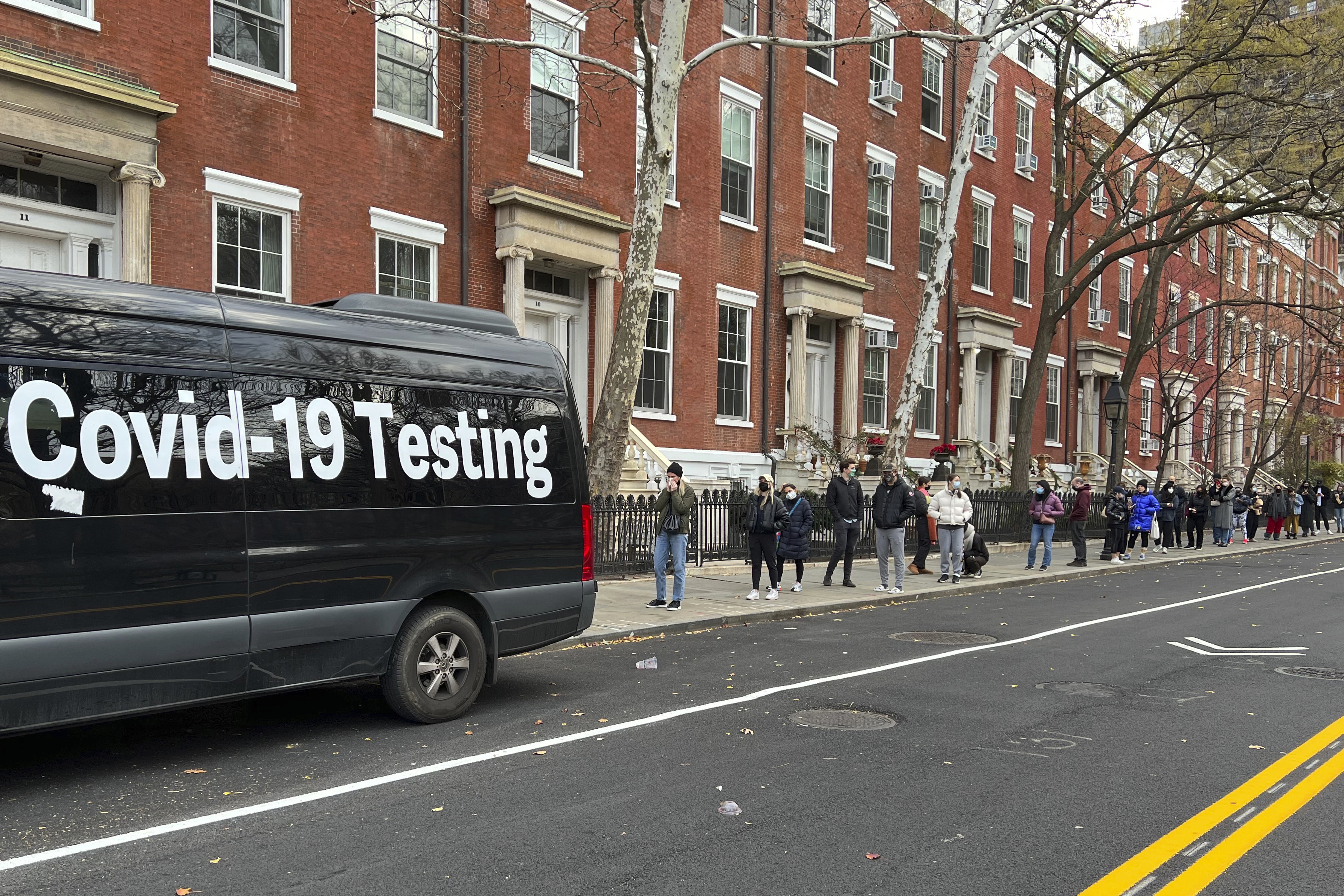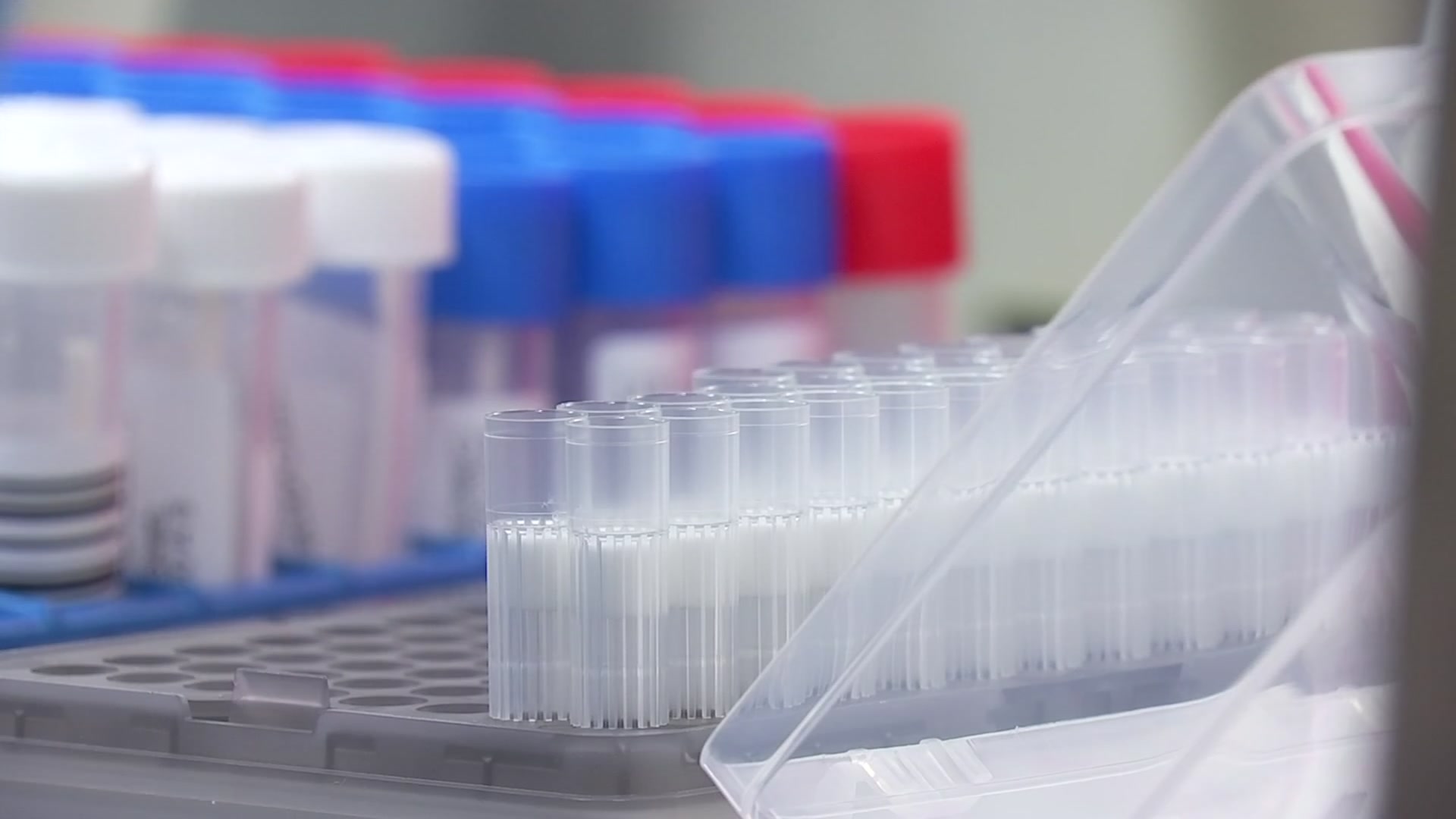With at-home testing demand soaring for the holidays, some are wondering which tests are best for detecting the new omicron variant surging across the country.
Some doctors, including Dr. Anthony Fauci, White House chief medical advisor and the top U.S. infectious disease expert, have cautioned that not all at-home antigen tests may be able to adequately detect the omicron variant.
It's a message Illinois' top doctor, Illinois Department of Public Health Director Dr. Ngozi Ezike echoed this week.
"There are some commercially available tests that won't detect omicron," she said. "But we have to remember that those rapid antigen test, they're not 100%. So if you have symptoms and have a negative test I would still be very cautious."
Rapid antigen tests, which work by detecting surface proteins of the coronavirus, are relatively inexpensive and quick, with results known in around 15 minutes. They can, however, miss the early stages of COVID-19 infection. Most popular at-home tests advise users to take two tests on separate days to ensure more accurate results.
Preliminary research by the the Food and Drug Administration, in collaboration with the National Institutes of Health's Rapid Acceleration of Diagnostics program, found that rapid antigen tests may be less sensitive at detecting the highly contagious omicron variant and could lead to results that are "false negative."
The research used samples from patients confirmed to be infected with the omicron strain of the virus to study the performance of at-home tests, also known as "antigen" tests.
The agency said early data suggests that antigen tests "do detect the omicron variant but may have reduced sensitivity," meaning it's possible such tests could miss an infection.
“It depends which antigen the test is trying to detect,” Pablo Penaloza-MacMaster, assistant professor of microbiology-immunology at Northwestern University Feinberg School of Medicine, said. “If it’s going after the nucleocapsid (an internal RNA-binding protein), it’s typically better because this viral protein is more conserved, meaning it mutates less than the spike protein.”
Feeling out of the loop? We'll catch you up on the Chicago news you need to know. Sign up for the weekly Chicago Catch-Up newsletter here.
According to the FDA, both the Abbott BinaxNOW and Quidel QuickVue antigen tests are able to detect the omicron variant "with similar performance as with other variants."
However, the FDA based its findings on preliminary studies that used heat-inactivated omicron samples, not live samples. Clinical evaluations using such samples remain ongoing.
Heat inactivation can potentially alter the virus's protein structure, which may lead to changes in test performance that can be mistaken for changes due to viral mutations.
Two other tests, Linea COVID-19 Assay Kit from Applied DNA Science and Revogene SARS-CoV-2 from Meridian Bioscience should not be used, according to the agency. The FDA stated research has found both are unable to detect the variant. These tests are not rapid/antigen tests, however.
The FDA stopped short of telling people to avoid using antigen tests and did not specify the brands of tests used in the study.
"The FDA continues to authorize the use of these tests as directed in the authorized labeling and individuals should continue to use them in accordance with the instructions included with the tests," the agency said in a statement. "Antigen tests are generally less sensitive and less likely to pick up very early infections compared to molecular tests."
Professors said while omicron might currently evade one test, that same test may work to detect a new variant in the future.
“While the Centers for Disease Control evaluate which home tests are less effective at providing an accurate result, it is important to keep in mind that rapid tests are an important tool for keeping everyone safe as many of us travel to be with family over the holidays,” said Thom McDade, the Carlos Montezuma Professor in the department of anthropology and a biological anthropologist at the Institute for Policy Research at Northwestern University.
In an interview with NBC's "TODAY" show, CDC Director Dr. Rochelle Walesnky said while antigen tests may not perform as well as it did for other variants, "it's still picking up quite a bit of infection" and the agency encourages its use.
"They are a really really helpful tool," Walensky said. "But what we would reiterate, and is also in our guidance, is that if you have a negative antigen test and you have symptoms, then you should go ahead and get that PCR test. And those antigen tests are really helpful for things like testing to stay in school, where we’re getting an antigen test every day, or every other day, or where they’re using them in higher education to screen students every several days, that’s where they perform really quite well, as well."




